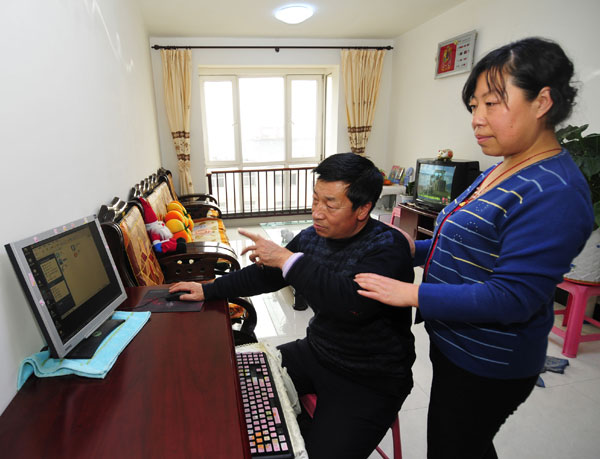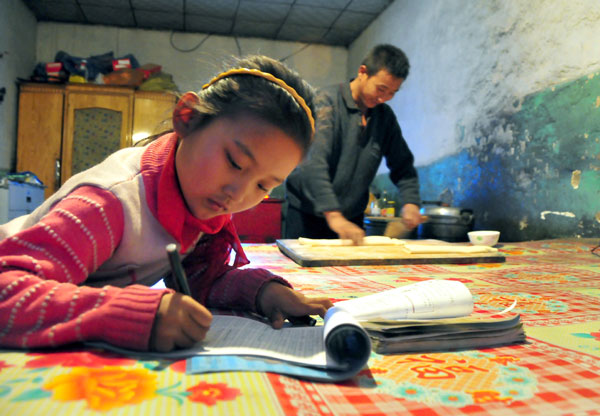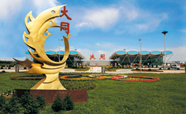Moving to the right side of the tracks
 |
|
Residents at their new home in Huimin community, Datong. Li Yi/ For China Daily |
The coal has fueled the rapid growth and subsequent prosperity of those who live at the eastern end of the railway, but for those on the other side of the tracks living conditions remain poor.
Like most of his neighbors in the shantytown near the Meiyukou mine, 45-year-old Ren was born into a mining family.
His father, Ren Pu, now 82, arrived in Datong from the countryside in 1959 to work as a miner. The family has lived in the two-room bungalow in the shantytown, built by the miners themselves from mud and stones, ever since.
After working underground for 24 years, Ren senior's poor health resulted in him quitting work in 1983. He has serious pneumoconiosis, or black lung disease, a common affliction among miners.
Ren Xinming followed in his father's footsteps and headed down into the mine at the age of 18. Five years ago, he retired at age 40.
Ren Xinming shares one room with his wife and their 9-year-old daughter, while his father, mother, 80, and 38-year-old sister live in the other.
 |
|
Ren Jie, 9, daughter of Ren Xinming, doing her homework. Li Yi/ For China Daily |
He receives 2,800 yuan ($448) every month from Datong Coal Mine Group, his former employer, and his wife earn another 1,000 yuan doing odd jobs. The financial pressure is overwhelming, especially as the couple pays about 20,000 yuan per annum in tuition and living expenses for their older daughter, 17, who is studying at a senior high school in another town.
"The market price of a new apartment would be at least 150,000 yuan and there's no way we could afford that," said Ren.
Copyright 1995 - 2010 . All rights reserved. The content (including but not limited to text, photo, multimedia information, etc) published in this site belongs to China Daily Information Co (CDIC). Without written authorization from CDIC, such content shall not be republished or used in any form. Note: Browsers with 1024*768 or higher resolution are suggested for this site.

